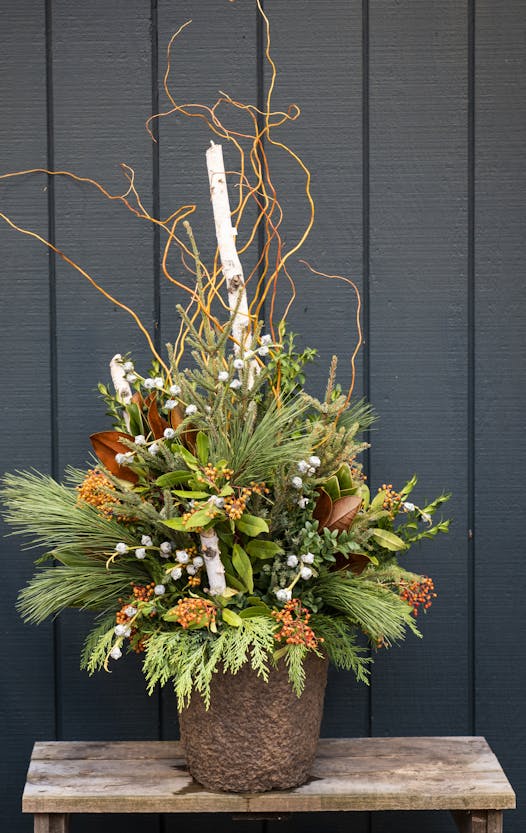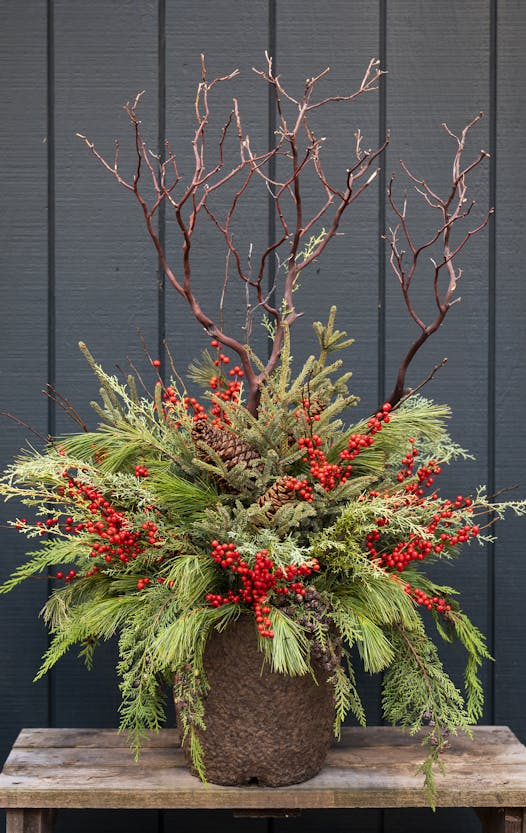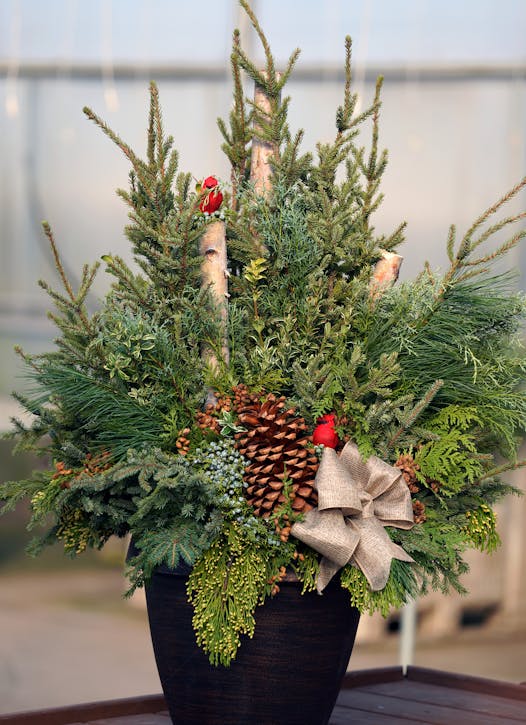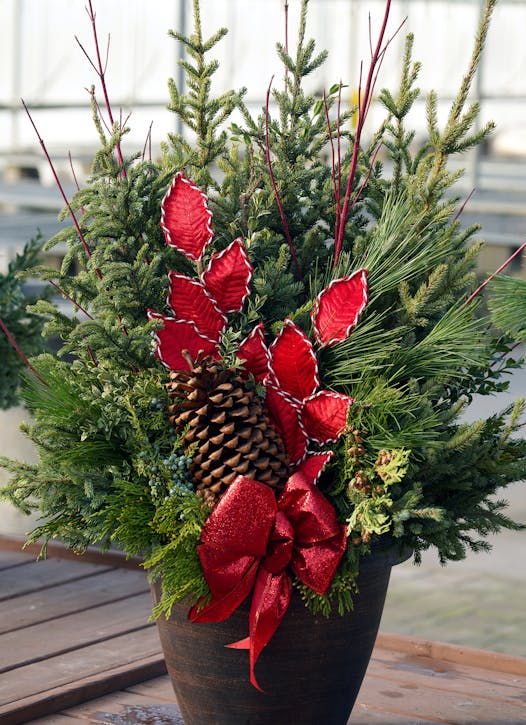Winter hasn't arrived — well, not technically, anyway — but it's time to give it a warm welcome. Since the chrysanthemums have been leveled by killing frost, we're getting an early start to winter pot and window-box season.
"I can't be without them," said Beth Rau of Pahl's Market in Apple Valley about winter containers. "They're welcoming, a pop of color, and they add so much to a front door or a porch."
Whether you build your own planter or buy one ready-made, whether you stick with traditional spruce tips, or go wild with cuttings from your garden, wintertime containers are "little pieces of art that make a house a home," said Madeline Parks, assistant manager at Leitner's Garden Center in St. Paul.
That's why we enlisted Rau and Parks to share their inspirational designs and pro tips.
Potting up fresh evergreens, birch branches and colorful berries is "our way of beating the winter weather," said Rau.
Designer: Madeline Parks, assistant manager at Leitner's Garden Center, 945 Randolph Av., St. Paul, leitnersstpaul.com.
Welcome winter
For this decorative display, Parks decided to steer clear of holiday red. "I wanted something that could still pass as festive," she said, "but would have a little bit of longevity." She started with sturdy birch poles, chosen because they're easy to work with and provide a stunning contrast to evergreens. She also used curly willow branches for height, and "one beefy" spruce top. While they are sometimes overused, Parks relies on these hardworking, conical branches to give shape to a design. "They're good as a base, but there are so many other types of greens to use," including "flowy" Norway pine and "drapey" cedar, which she tucked in around the base of this pot to give it a soft, finished look. For color, she added fresh toyanberry, bluebell eucalyptus and magnolia leaves.
Happy holidays
Parks went full-tilt-traditional for her holiday-themed design. She relied heavily on easily accessible materials — spruce tips, wispy white pine, cedar. But she based her design around one standout element: a manzanita branch, tall, showy and strong. Because she wanted to showcase the decorative branch, not have it "hidden behind greens," she decided to "play with the shape" of her design. Instead of a more conventional conical shape, she created a lower, rounder design with the evergreens. For added texture, she tucked in some Carolina sapphire. For color, she used bright red winterberry and a few well-placed pine cones. To take this pot beyond the holidays, Parks would add a few non-Christmasy colored accents, such as burgundy-washed eucalyptus or yellow craspedia.
Designer: Beth Rau, Pahl's Market, 6885 W. 160th St., Apple Valley, 952-431-4345, pahls.com.
Welcome winter
To get a look to last all season long, Rau went for texture, selecting a mix of greens — including spruce tips, pines, cedar and juniper. She also added some variegated boxwood. Its white-tipped green leaves create a focal point and add a contrasting color. Even better, they keep their fresh look until spring. To add height, solidity and structure, Rau nestled in three fairly thick birch branches. "There's nothing like beautiful birches in winter," she said. The finishing touches include a neutral-colored bow and a couple of fire-red cardinals, which she perched on the birch poles.
Happy holidays
Rau's love of red, which she calls "the most traditional Christmas color," led her to augment her Christmas-themed design with a handmade glittery red ribbon, red twig dogwood branches and red huckleberry leaves. She started her design with a hefty number of spruce tips, then supplemented them with sturdy branches of blueberry juniper, which she uses to fill holes and add a bluish contrast to the other greens, including wispy white pine and cone cedar, which drapes over the front of the pot. Red twig dogwood branches add height and continue the red theme. Then she added a few pine cones as finishing touches.
Tips from the pros
• Plan your palette. Don't use a rainbow of colors. "The more different colors you have, the more chaotic it looks," said Parks. She recommends limiting your palette to a few colors. She also advises against going overboard on the "ingredients." She often relies on four or five.
• Create impact. Don't use a single branch of Norway pine or one stem of berries. Instead, use a handful and repeat them throughout the design.
• Build or buy for your location. If your container will be against the wall of your house, design the focal point in the front, advised Rau. If it can be seen from all sides, go for a 360-degree design.
• Go wild. "I generally do natural materials," said Parks. They start fresh, dry beautifully and hold up to the weather. Silks add a festive touch, but may show winter wear and tear.
• Feel free. "There's no right or wrong," said Rau. "I let the greens tell me what I should do."
• Raid your garden. "I encourage people to use whatever they like or think is interesting — a pod, spray-painted twigs or dried flowers," said Parks.
• Build a solid foundation. Instead of using potting soil, Parks opts for sand. It's easier to work with, and its weight helps prevent pots from tipping over.
• Freeze it in place. Once you're done with your design, water it well. The weather should take care of the rest.

The 5 best things our food writers ate this week

A Minnesota field guide to snow shovels: Which one's best?

Summer Camp Guide: Find your best ones here

Lowertown St. Paul losing another restaurant as Dark Horse announces closing






